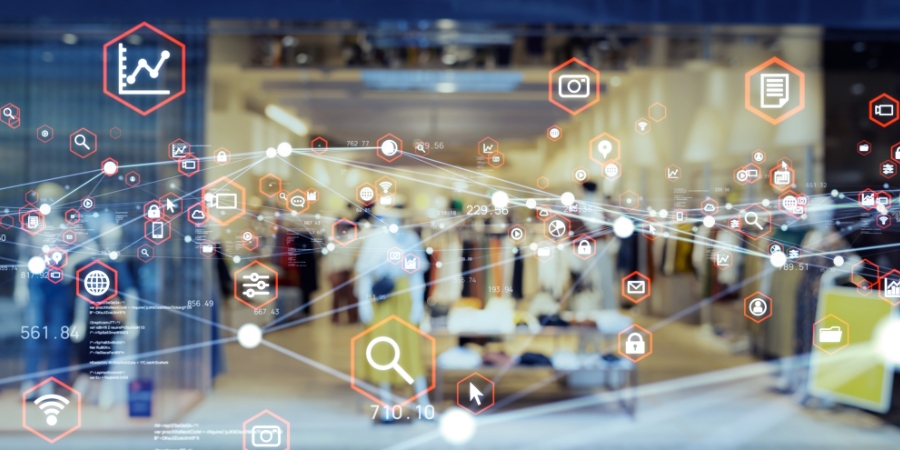
Blogs
Innovating Category Management – Startups Disrupt Traditional Retail Solutions With Computer Vision and AI
July 31, 2023
From identifying on-shelf availability to enabling cashier-less stores, computer vision and artificial intelligence capabilities are at the center stage, processing images and making it possible. Computer vision is the one critical technology retail is slowly becoming dependent on to innovate and solve many of its business challenges. It brings effectiveness by scaling, increasing speed, and improving accuracy to achieve customer satisfaction on the shelf or online. Product identification and shopper behavior have the potential to vastly improve the shopping experience while reducing labor and overall cost to all operations.
Evolving
Various approaches to computer vision have been implemented in the past decade, with most of the effort focused on building robots that navigate aisles. Some retailers have used fixed cameras to collect images for processing, identify on-shelf availability, and measure compliance. This has proved challenging, however, with limited successes in reaching accuracy levels and scale deployment.
For shelf-based solutions, many businesses still rely on handheld devices and labor to capture images of shelf conditions periodically and get a snapshot in time of the shelf. Other uses of these technologies extend to in-store aisle traffic and monitoring to reduce shrink. Much experimentation is ongoing for a cashier-less store, with several trial stores erected by Amazon in various formats to test and learn.
Reflection
An observation I made attending industry conferences, there is an abundance of solutions and startups claiming to solve on-shelf availability. The field is getting crowded, and solution viability with a clear ROI is proving challenging. As product recognition becomes commoditized with the availability of Google and Azure computer vision services, differentiation is critical for acceptance and growth.
Differentiators
Here, I identify a few of the solutions that are differentiating and have the potential to solve multiple store-level business problems and generate insights accurately, repeatably, and reliably at scale. I also look at the flexibility and potential of the solution to expand and solve multiple issues. Let’s face it, we should not need to use the same type of hardware sensors from different vendors to solve the various problems at a store. There will be a time when we must simplify to a one-to-many approach, one sensor solving many problems.
Amoobi
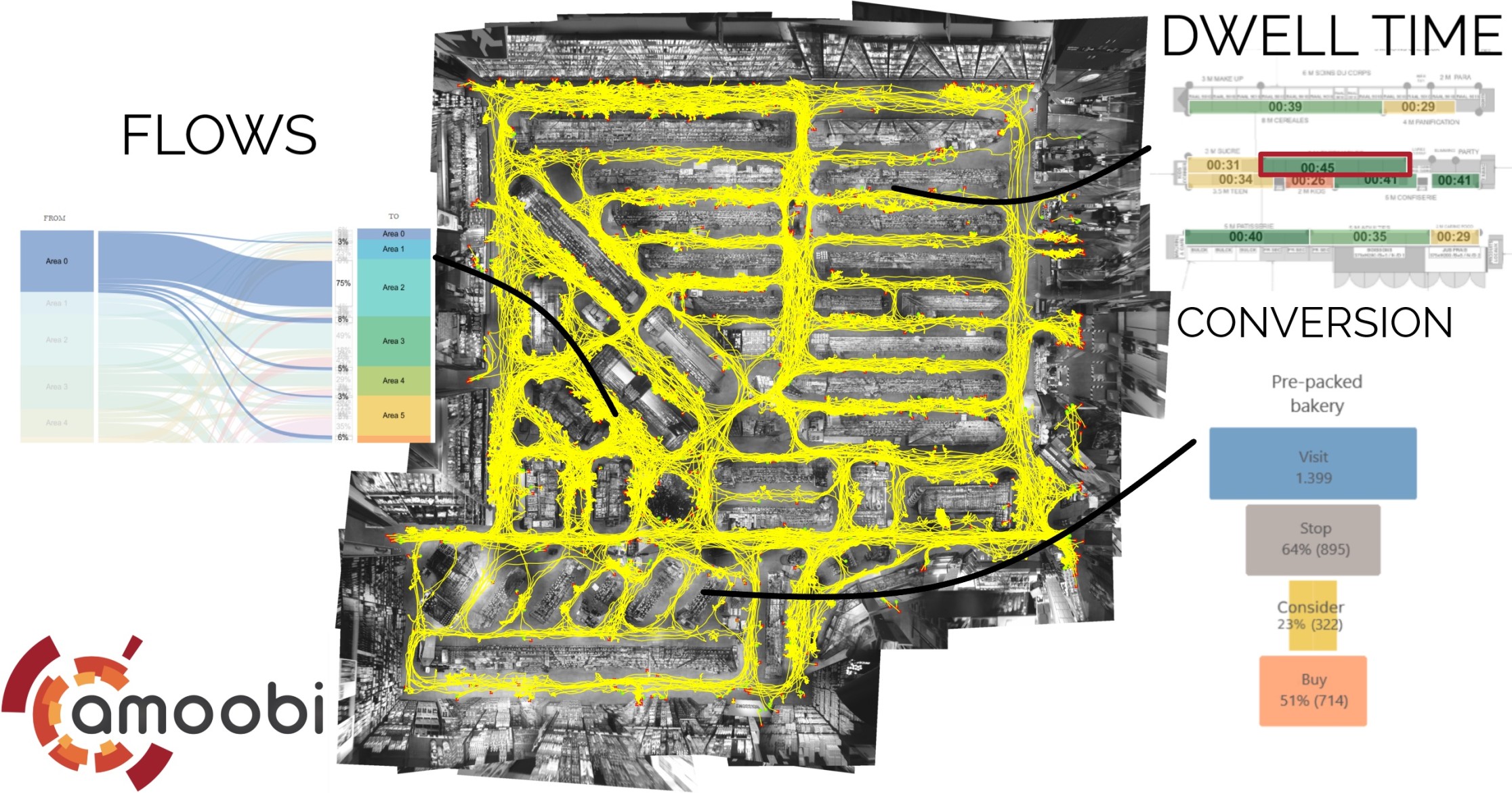
Amoobi is a Belgian company born out of the necessity of addressing the decades-long problem of understanding retail store traffic and shopper behavior. This problem must be addressed while complying with the General Data Protection Regulation (GDPR), which is not an easy task to do and something retailers are very cautious of. It’s a top concern when introducing new tracking technologies to stores. The GDPR is in full force in Europe, quickly expanding to the U.S. and beyond.
With privacy concerns at the solution’s core, Amoobi has built a system to track the shopper’s journey without recording facial recognition on the edge. Relying less on computer vision and more on AI, the company strategically placed sensors that can track shoppers’ journeys from entry to checkout transaction as well as collate and perform all the analysis needed to understand and optimize space in the store. Amoobi also built a portfolio of data-driven and analytics deliverables that will make them a core component of every category review process. This is a great accomplishment by a newcomer that managed to establish its presence in Europe and is now trialing its solution at several tier-one retailers in the U.S.
Everseen
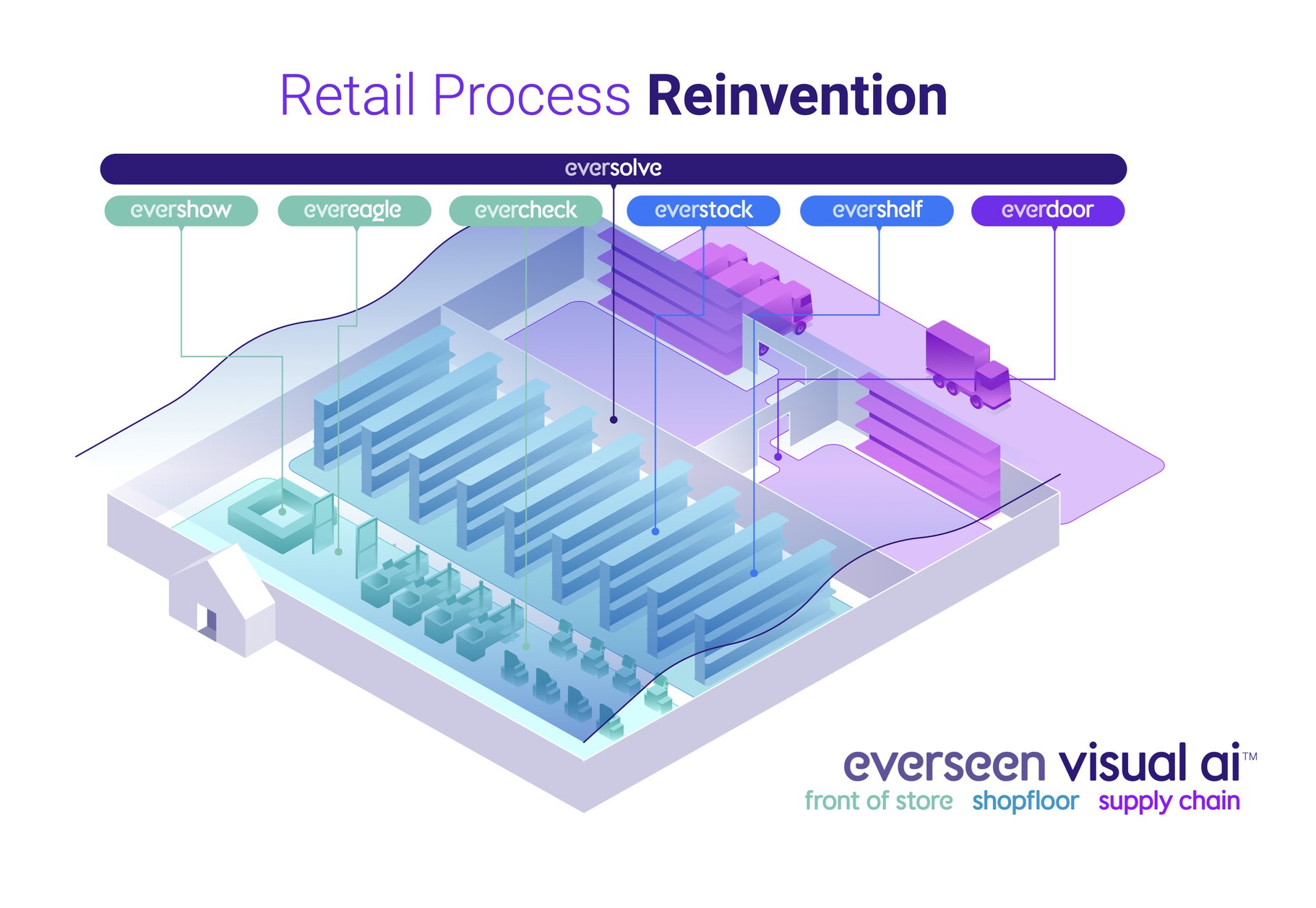
A company from Ireland, Everseen has come a long way, maturing and scaling its computer vision AI solution globally to solve a $100 billion-a-year inventory shrink problem for retail. Now present at 6,000 stores in over half of the world’s top 15 retailers in the U.S., Europe, and Australia, the company completed a series A raise of 65 million euros to help them continue advancing, innovating, and scaling, solving checkout, inventory, and supply chain problems.
Everseen can quickly detect in-store behavior, identify scanned products at checkout, verify their accuracy, report any discrepancies, and provide real-time alerts. This is an impressive feat. That same computer vision AI technology is now leveraging the learnings and expanding to solve many problems in stores, from the checkout process, to the shelf, back of the store, and the warehouse. What’s even more impressive is that the solution mainly uses the store’s existing infrastructure to minimize its technology footprint while avoiding any inconvenience to the shopper and reducing costs for the retailer. With proven capabilities and new funding, Everseen is well-positioned to expand and deepen its end-to-end coverage capabilities providing retail visibility at scale.
PCSSO
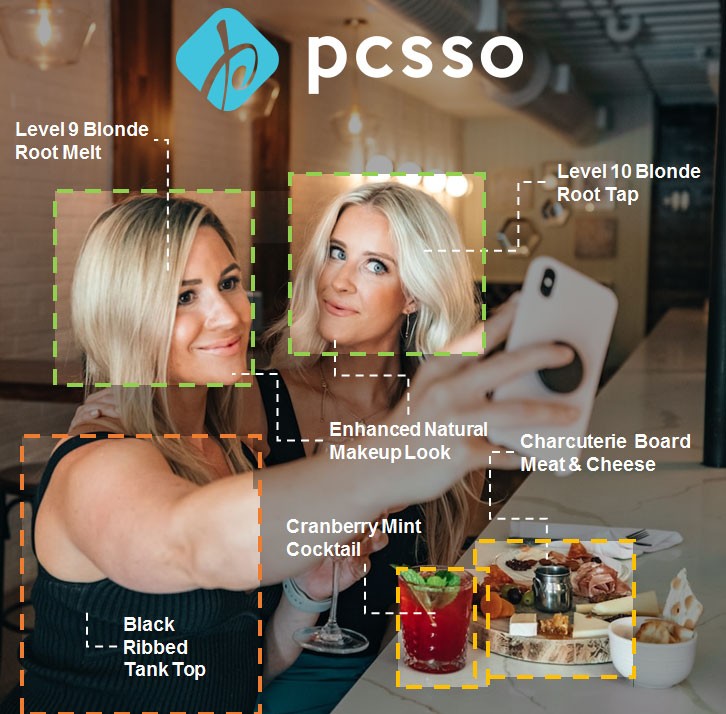
PCSSO is a startup based in Toronto, Canada, that specializes in detecting the presence of products in images and videos. PCSSO leveraged its patented technology to develop a consumer intelligence platform that comprehensively understands consumers, overcoming the traditional limitations of credit card data and focus groups. Social listening through imagery is the most significant impact and differentiator. The unique, panel-based approach enables brands to track distinct and targeted consumer segments effectively. PCSSO has worked with various major enterprises, helping them enhance product design, optimize e-commerce and marketing campaigns, and forecast consumer adoption.
In today’s rapidly evolving and highly segmented world, a tool like this will be crucial for multinational organizations to manage large numbers of brands better while staying attuned to consumer trends across many different countries. PCSSO also offers intriguing forecasting capabilities — they are so confident in their ability that they provide a forecasting accuracy guarantee, which positions them as a potentially significant disruptor to traditional brand product research methods.
Spacee
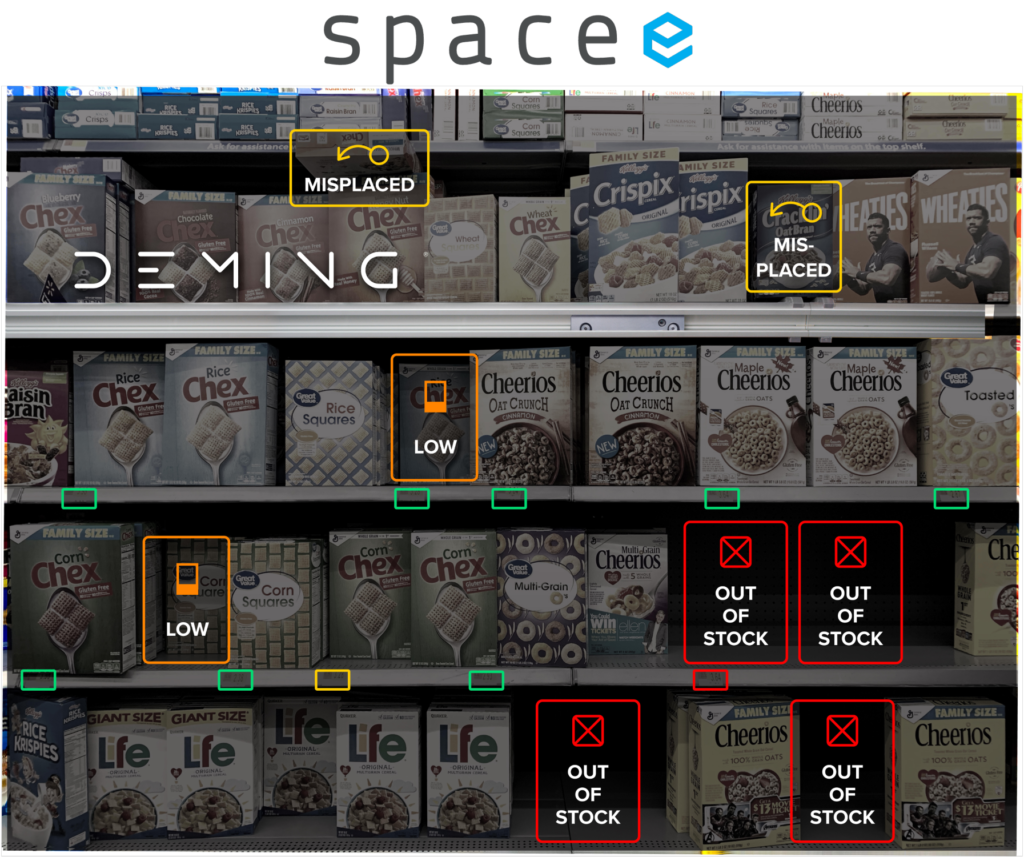
Spacee is a startup based in Dallas, Texas, that specializes in inventory visibility and real-time monitoring of shelf conditions. While other options, like robots, fixed cameras, and handheld devices, are available in the market, Spacee has set itself apart from its competitors by addressing the problem differently and making the solution more accessible to retailers. One of Spacee’s unique approaches is a patented robot camera that navigates inside a tube hanging on a shelf, allowing it to go further, maturing its capabilities quickly and covering more ground. The movable fixed camera navigates on a track covering the whole side of an aisle, capturing images and recording videos of shelf conditions regularly throughout the day.
This approach is much less disruptive to the store when compared to robots, invisible to shoppers, and cost-effective compared to fixed camera infrastructure. This design enables retailers to monitor shelf conditions accurately, repeatedly, and reliably at scale, resulting in impressive outcomes. Unburdened by typical navigation, infrastructure, and human issues associated with robots, fixed cameras, and human image capturing, Spacee concentrated on refining their computer vision to solve retail problems and deliver high accuracy. They are positioning themselves as a company that licenses its patented intellectual property technology to solve retail problems effectively. They continue to innovate and expand the depth of their portfolio, leveraging their patents.
The potential
What do all these companies have in common? Differentiation is at the core, enabling them to stand out in a crowded field with clear-to-see solutions while disrupting traditional ways of solving retail problems.
Also, it’s important to recognize the focus they showed and the maturity to adjust where needed based on learning and not letting distracting shiny objects derail their quest. This is a crucial handicap for startups and a challenge that takes much discipline to keep in check.
With their differentiators established, these companies are positioned to grow their market and expand their portfolios under the retail solution umbrella. They will play a key role in advancing the retail computer vision and AI solution field by continuously bringing about real value from innovative approaches.
About the Author
Georges F Mirza has been ahead of trends in developing retail/CPG market-leading industry-changing solutions. He led the charge and established the roadmap for robotic indoor data collection, image recognition, and analytics for retail to address out-of-stock, inventory levels and compliance. Georges currently advises companies on how to strategize and prioritize their roadmaps for growth. Follow him on LinkedIn and Twitter.

